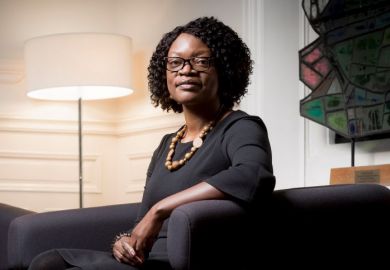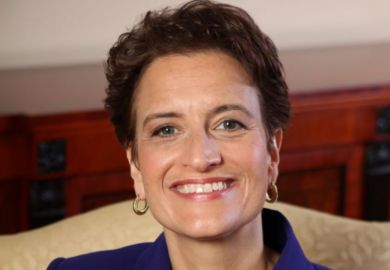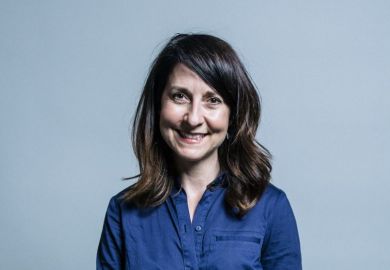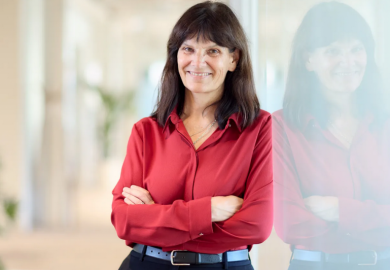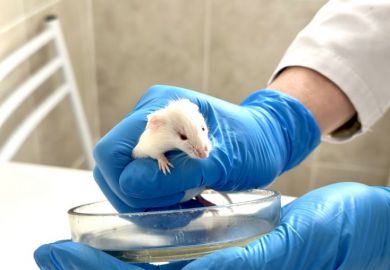Henry Snaith is professor of physics at the University of Oxford. His research focuses on the creation of cheaper and more efficient means of generating solar energy, via the use of materials known as perovskites in solar cells. Professor Snaith won the Institute of Physics’ James Joule Medal and Prize last year and, earlier this year, he was named physical sciences and engineering laureate in the 2018 Blavatnik Awards for Young Scientists in the UK.
Where were you born?
Norfolk, in the UK.
How has this shaped you?
I definitely prefer the countryside to cities. I spent most of my childhood playing outside. I also loved growing up near the sea – I think that this has helped me to gain a deep appreciation for the natural environment and our need to live sustainably.
You were commended by the Blavatnik Awards’ judges for your research into uses of perovskite materials. Why is this so important?
We are making a transition from a fossil fuel-powered society to a renewable energy-powered society. The work that I have been doing on solar cells has the potential to make solar photovoltaics more efficient and cheaper, which will help to make this transition to sustainable power generation much faster.
What does the future have in store for solar power?
I believe that we will generate close to 100 per cent of our power from solar energy and this will drive a predominantly electric future world. We are likely to still need some fuels for certain applications – aviation, for instance – but these fuels can be synthesised using solar-generated electricity as the energy feedstock. Improvements in electricity storage are also needed to enable this, accompanied by long-range, high-power-density electrical transmission, to move electrical power to less sunny locations.
Will we ever be able to fully rely on such technologies?
I anticipate that, within a decade, all newly installed electricity generation capacity will be either solar or wind, with solar photovoltaics being in the majority. It’s probably then another 30 years before all electricity generation around the world is renewable.
What kind of undergraduate were you?
I worked pretty hard, but also played pretty hard. I used to sit in the front row of lectures, mainly because it was easier to concentrate when I was sitting right in front of the lecturer. I tried to get my assignments done early so that I could relax and have fun in the evenings and at weekends. Beyond work, I spent a lot of my time playing university rugby and windsurfing.
What was your most memorable moment at university?
Seeing a lecturer electrocute themselves on stage. This was on purpose and part of the health and safety induction.
Have you had a eureka moment?
What I have learned is that, by our definitions, it is very difficult to truly invent, but it is possible to discover the truly unexpected. With my work, the ideas that appear like eureka moments when conceived rarely work in the way that you expect. I have had a number of moments working with solar materials where test experiments designed to fail, in order to confirm a hypothesis, have, in fact, worked. My main example is working with perovskite materials – we removed the electrical conducting material from the solar cell, expecting this to prevent the current flowing out of the cell. Counter-intuitively, we measured more current flowing out of the cell, which told us that these new materials, perovskites, were excellent conductors of electricity.
What is the biggest misconception about your field of study?
That solar energy is decades away from being useful. It is right here, right now, but it is not being appropriately planned for.
If you were a prospective student facing £9,000-plus fees, would you go again or get a job?
I would definitely go to university: the prospects for the future that a university degree opens up far outweigh the costs. This can be quantified in monetary terms but it is much more than just financial, since there are literally thousands of jobs that are very difficult to gain access to without a degree and, in many instances, without a PhD.
If you weren’t an academic, what do you think you’d be doing?
I would probably be working in a technology start-up company or some tech industry. If I didn’t do science at all, I may have been an architect or have worked in some financial area. I took economics A level, which I enjoyed, but I was thankfully put off entering a financial institution after doing an induction day with a trading firm. I think that, if I had chosen the latter career path, I would have had quite a few regrets.
What brings you comfort?
Regardless of what we do, the world will probably still be around for another 5 billion years. So even if we completely mess up the planet, there is probably time for it to recover post humans.
What saddens you?
All the apparently needless violence, war, famine, and the abuse of animals and humans that seems to relentlessly take place across the world and within all societies at differing levels. I am also concerned about the negative impact that we have on the environment and our unsustainable activities. However, I am optimistic that these latter points are more easily addressable through technology, economics and awareness.
Do you live by any motto or philosophy?
I think that some things are probably best not vocalised, but I am definitely aware that our personal lives are very short in the grand scheme of things. It is clichéd, but I think that it is really important not to worry about failure. If an opportunity presents itself, it is important to pursue that opportunity, even if the chances of success are low. If everyone tries, then many successful things will happen; if no one tries, then no success will occur.
What would improve your working week?
More hours in a day. I spend a significant fraction of my time writing grant applications – it would be great if that process could be streamlined so I could spend more time and effort on research.
Register to continue
Why register?
- Registration is free and only takes a moment
- Once registered, you can read 3 articles a month
- Sign up for our newsletter
Subscribe
Or subscribe for unlimited access to:
- Unlimited access to news, views, insights & reviews
- Digital editions
- Digital access to THE’s university and college rankings analysis
Already registered or a current subscriber?

